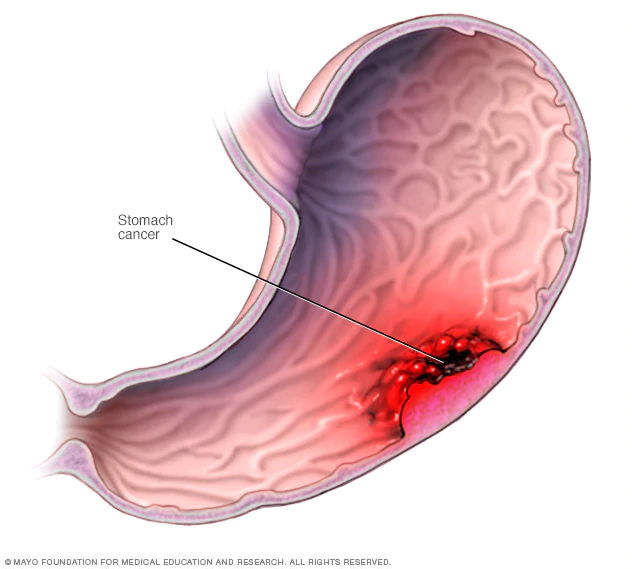Stomach Cancer Treatment in Ireland
Search and Compare the Best Clinics and Doctors at the Lowest Prices for Stomach Cancer Treatment in Ireland

Find the best clinics for Stomach Cancer Treatment in Ireland
No clinics available
Ukraine offers the best prices Worldwide
Price: $ 2,487

- Home
- Ireland
WHY US?
At Medijump, we're making medical easy. You can search, compare, discuss, and book your medical all in one place. We open the door to the best medical providers worldwide, saving you time and energy along the way, and it's all for FREE, no hidden fees, and no price markups guaranteed. So what are you waiting for?

Free

Best Price

Widest Selection

Risk-Free
What you need to know about Stomach Cancer Treatment in Ireland

If you have been diagnosed with stomach cancer, your doctor will discuss your treatment options with you. Your treatment options depend on several factors, including your overall health, the stage of your cancer, your age, and your personal preference. Stomach cancer may be treated with surgery, chemotherapy, radiation therapy, targeted therapy, or immunotherapy.
What does a Stomach Cancer Treatment Procedure Involve?
Surgery for stomach cancer is performed to remove all of the stomach cancer and some of the surrounding healthy tissue, your doctor may remove early-stage tumors from the lining of your stomach, remove a portion of your stomach (subtotal gastrectomy), remove your entire stomach (total gastrectomy), and remove lymph nodes to look for cancer. All of these surgeries are performed under general anesthetic. With chemotherapy, a drug is used to kill cancer cells, while with radiation therapy, high-powered energy beams are used to kill cancer. Your doctor may also recommend targeted therapy or immunotherapy, which uses targeted drugs or your own immune system to fight cancer.
How Long Should I Stay in Ireland for a Stomach Cancer Treatment Procedure?
After surgery, you will need to stay in the hospital for three to eight days and stay in Ireland for seven to fourteen additional days after you are discharged. If you undergo immunotherapy, chemotherapy, radiation therapy, or targeted therapy, your length of stay depends on how many cycles are needed for your specific case.
What's the Recovery Time for Stomach Cancer Treatment Procedures in Ireland?
The total recovery time until you can return to your normal routine may take several months, but you should be able to return to work within 4-6 weeks. If you only have therapy, you should be able to return to most of your activities when you do not experience any symptoms that interfere with your ability to perform your duties.
What sort of Aftercare is Required for Stomach Cancer Treatment Procedures in Ireland?
You need to adjust to a new diet after the surgery so make sure to talk to a dietitian about what to eat. Regular exercise is really important to keep your body healthy, you can start walking as soon as you can. Make sure to schedule follow-up checkups with your doctor to monitor your condition and you may do this with your local doctor at home or your doctor in Ireland.
What's the Success Rate of Stomach Cancer Treatment Procedures in Ireland?
Treatment for stomach cancer is known to be effective, but the success rate varies depending on how early the treatment is performed as well as the stage of cancer. The side effects and risks of stomach cancer treatment, which include infection, bleeding, damage to other organs, problems with anesthetic, hair loss, and fatigue.
Are there Alternatives to Stomach Cancer Treatment Procedures in Ireland?
If you prefer not to undergo treatment or too frail for any type of treatment, you should consult with your doctor and cancer team on the best alternative for you. In some cases, surgery to relieve only the signs and symptoms is recommended.
What Should You Expect Before and After the Procedure
Stomach cancer causes symptoms such as heartburn, nausea, pain, vomiting, and fatigue that may interfere with your daily life. It is also dangerous and it can spread to other organs. After the surgery, you should no longer experience any symptoms and you can return to your normal life.
Whilst the information presented here has been accurately sourced and verified by a medical professional for its accuracy, it is still advised to consult with your doctor before pursuing a medical treatment at one of the listed medical providers
No Time?
Tell us what you're looking for and we'll reachout to the top clinics all at once
Enquire Now

Popular Procedures in Ireland
Prices Start From $1,314

Prices Start From $512

Recommended Medical Centers in Ireland for procedures similar to Stomach Cancer Treatment

- Interpreter services
- Translation service
- Religious facilities
- Medical records transfer
- Medical travel insurance
- Health insurance coordination
- TV in the room
- Safe in the room
- Phone in the room
- Private rooms for patients available

- Interpreter services
- Translation service
- Religious facilities
- Medical records transfer
- Medical travel insurance
- Health insurance coordination
- TV in the room
- Safe in the room
- Phone in the room
- Private rooms for patients available

- Interpreter services
- Translation service
- Religious facilities
- Medical records transfer
- Medical travel insurance
- Health insurance coordination
- TV in the room
- Safe in the room
- Phone in the room
- Private rooms for patients available

- Interpreter services
- Translation service
- Religious facilities
- Medical records transfer
- Medical travel insurance
- Health insurance coordination
- TV in the room
- Safe in the room
- Phone in the room
- Private rooms for patients available

- Interpreter services
- Translation service
- Religious facilities
- Medical records transfer
- Medical travel insurance
- Health insurance coordination
- TV in the room
- Safe in the room
- Phone in the room
- Private rooms for patients available

- Interpreter services
- Translation service
- Religious facilities
- Medical records transfer
- Medical travel insurance
- Health insurance coordination
- TV in the room
- Safe in the room
- Phone in the room
- Private rooms for patients available

- Interpreter services
- Translation service
- Religious facilities
- Medical records transfer
- Medical travel insurance
- Health insurance coordination
- TV in the room
- Safe in the room
- Phone in the room
- Private rooms for patients available

- Interpreter services
- Translation service
- Religious facilities
- Medical records transfer
- Medical travel insurance
- Health insurance coordination
- TV in the room
- Safe in the room
- Phone in the room
- Private rooms for patients available

- Interpreter services
- Translation service
- Religious facilities
- Medical records transfer
- Medical travel insurance
- Health insurance coordination
- TV in the room
- Safe in the room
- Phone in the room
- Private rooms for patients available

- Interpreter services
- Translation service
- Religious facilities
- Medical records transfer
- Medical travel insurance
- Health insurance coordination
- TV in the room
- Safe in the room
- Phone in the room
- Private rooms for patients available
Stomach Cancer Treatment in and around Ireland
Introduction
Ireland, also known as the Republic of Ireland, is a country located in north-western Europe that occupies 26 of 32 counties on the island of Ireland. The country’s breath-taking landscape, wonderful people, and fascinating history have made it an unforgettable destination for many visitors. Aside from its beauty, more and more people also come to Ireland for high-quality healthcare. The country is a newcomer to the medical tourism market. However, it’s seen as an increasingly attractive destination due to the reasonably priced and high standard of clinical care available in the country. Most foreign patients come for cosmetic surgery and dental treatments, but many hospitals and clinics in the country offer a wide variety of services, such as cardiology, pathology, pulmonary, and gynecology. Also, the Joint Commission International has accredited several hospitals in the country, most of which are located in Dublin.
Popular Cities and Regions in Ireland
Ireland’s capital and largest city, Dublin, is the most popular tourist destination within the country. In fact, it’s the fourth most visited European capital. It’s filled with excellent pubs serving the perfect pint of Guinness, amazing Georgian architecture, and layers of fascinating history. Tourists in this city usually visit the Guinness Storehouse Factory, tour the Old Jameson Distillery, admire the Spire of Dublin, explore Dublin Castle, and marvel at the beauty of St. Patrick’s Cathedral. Another famous city is Cork, which is the second-largest city in the country. It’s a youthful cosmopolitan city packed with artisan coffee bars and snug pubs. Tourists usually come to kiss the Blarney Stone for good luck, enjoy the coastal landscape in Mizen Head, or hike around Gougane Barra. Other popular cities and towns include Galway, Killarney, Kilkenny, and Letterkenny.
Transport in Ireland
The main airport in Ireland is Dublin Airport. It connects the country with numerous cities around the world, including New York, Abu Dhabi, and Hong Kong. Trains and buses are available to travel around the country. However, public transportation is generally sparse in rural areas. Therefore, renting a car is the best mode of transport. Taxis and Uber are available to travel inside major cities.
Visas in Ireland
Ireland has opted out of the Schengen Area. The country allows all EU citizens, as well as citizens of 56 other countries (such as the UAE and the US), to stay without a visa for up to 90 days. Citizens of other countries are required to apply for a visa in advance.
Weather in Ireland
Summer (June – September) provides plenty of sunshine and lower levels of rainfall, with an average temperature of 14°C - 16°C. Winter (October – February) is chilly, with ample rainfall and some snow. Spring and autumn are generally pleasant, with warmer temperatures and more sunshine.
Additional Info
- Local Currency: The official currency is the euro. 1 EUR is approx. 1.08 USD.
- Money & Payments: ATMs are easy to find. Credit and debit cards are widely accepted. Tipping is expected in some places, typically 10% for decent service.
- Local Language: There are several languages used in Ireland. English has been the predominant first language since the late 18th century, but Irish is still widely used by a small percentage of the population.
- Local Culture and Religion: The constitution of Ireland guarantees freedom of religion. Christianity is the largest religion. However, Islam, Hinduism, Judaism, Buddhism, Neo-Paganism, and other religions are present.
- Public Holidays: Some of the most celebrated public holidays are New Year’s Day, St. Patrick’s Day, Easter Monday, Christmas Day, and St. Stephen’s Day.
Popular Searches
- Plastic Surgery in Thailand
- Dental Implants in Thailand
- Hair Transplant in Thailand
- Breast Augmentation Thailand
- Gastric Sleeve in Thailand
- Gender Reassignment Surgery in Thailand
- Laser Hair Removal in Bangkok
- Botox in Bangkok
- Dermatology in Bangkok
- Breast Augmentation in Bangkok
- Coolsculpting in Bangkok
- Veneers in Turkey
- Hair Transplant in Turkey
- Rhinoplasty in Turkey
- Stem Cell Therapy in Mexico
- Rhinoplasty in Mexico
- Liposuction in Mexico
- Coolsculpting in Tijuana
- Rhinoplasty in Korea
- Scar Removal in Korea
- Gastric Sleeve in Turkey
- Bone Marrow Transplant in India
- Invisalign in Malaysia
- Plastic Surgery in the Dominican Republic
- Tummy Tuck in the Dominican Republic
- Plastic and Cosmetic Surgery in Poland
- Rhinoplasty in Poland
- Hair Implant in Poland
- Dental Implants in Poland
- IVF in Turkey